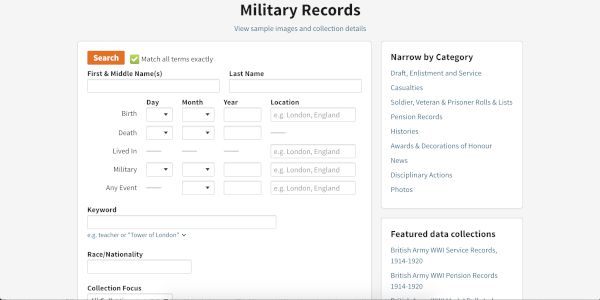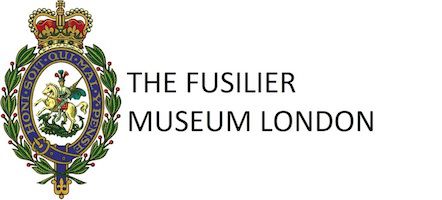Seems so simple really, just go to Ancestry or Find My Past (FMP), punch in Military information for World War One and select British servicemen and there you have it.
Or is it?
Although there is duplication between the records of Ancestry and FMP it is still worth checking both sets of records. For instance, only Ancestry has details of the British Army Medal Rolls.
In these records you will find quite easily the following:
1. British Army service records 1914-1920
2. British Army pension records 1914-1920
The problem with both of these is that the majority no longer exist and if they do, many are unreadable. Nearly all WWI records of any type were stored in the same place in Lambeth and were destroyed by German bombing during 1940. Those that survived (approx. 20%) are known as "the burnt papers".
3. British Army Medal Rolls (not available on FMP)
Nearly all of these do exist and are the best place to start to find a relative as nearly all who served are here (just hope his name is not Smith as 10,305 of them died in the Great War!).
4. UK Soldiers who died in the Great War
Although UK Soldiers who died in the War can be found on these sites you are best to use the Commonwealth War Graves Commission (CWGC) website as it contains additional information.


Other areas that are easy to miss that provide additional information are:
1. UK WWI Service Medal and Award Rolls
These often provide additional information to that found on the British Army Medal Rolls.
2. UK Army Register of Soldiers Effects
These detail final pay and the Gratuity payment based on length of service of soldiers who died in service and gives the next of kin.
3. Army Lists (only available from the National Archives)
Provides details of Officers Commissions and promotions (Officers Records appear to only be available via the National Archives papers reference WO337 and 374).
4. Silver Badge Awards
Often applied for by injured servicemen no longer able to serve.
5. Gallantry Medal winners
E.g. Victoria Cross, Military Cross, Distinguished Conduct Medals and Military Medals. To find these records search under the name of the specific medal you are interested in.
On Ancestry you will also see ‘’View all card catalogues’’ or go to: Search/Card Catalogue/Military. This will take you to other military records but not all refer to WWI.
On Find My Past you can go to: Search/Military armed forces and conflicts/First World War or Medal Rolls and Honours or Regimental and Service Records. The good thing here is that in certain boxes you can ‘Browse’ e.g. by Record Set which gives you a list of items which like Ancestry lead to other military records (again not all relate to WWI).
Other useful websites are:
- ICRC (International Committee for the Red Cross) for P.O.W records
- CWGC website for those killed in the war as it has more detail
- Gov.uk Probate search Soldiers Wills and Probate records are available for a fee (£10.00)
- The London Gazette
- The Long Long Trail
- The Western Front Association
- Invasionzone (Great War Forum)
- The National Archives at Kew
And best of all (and far too cheap!) The Fusiliers Museum London's Research Enquiries service
